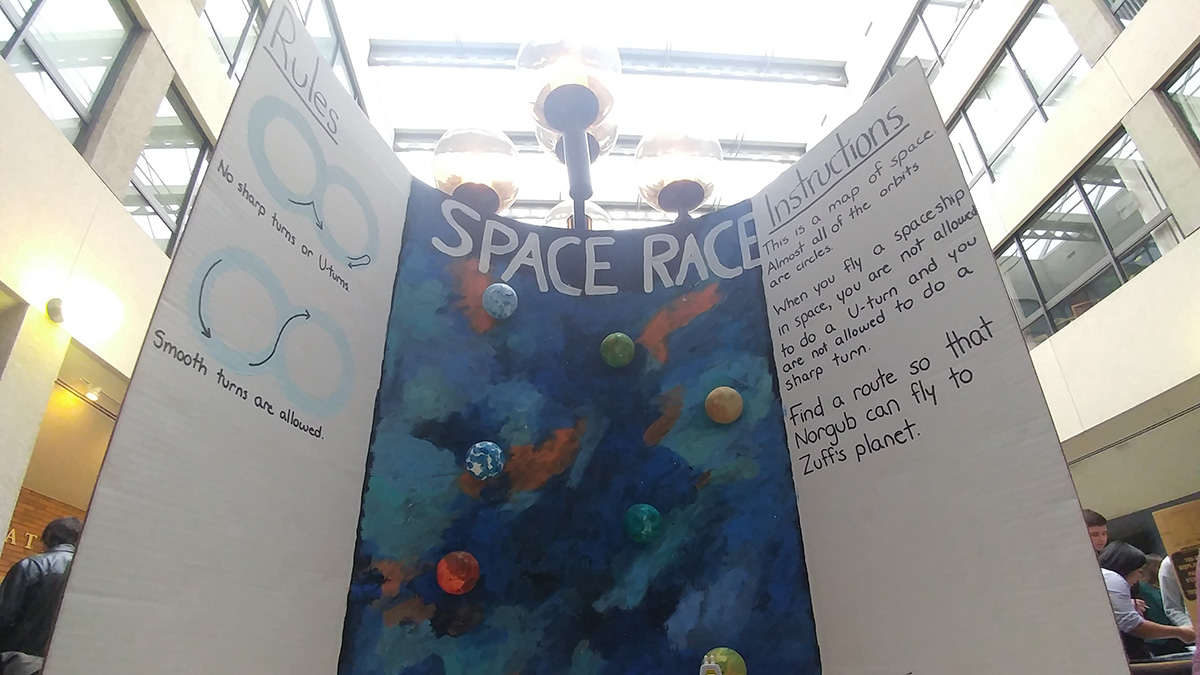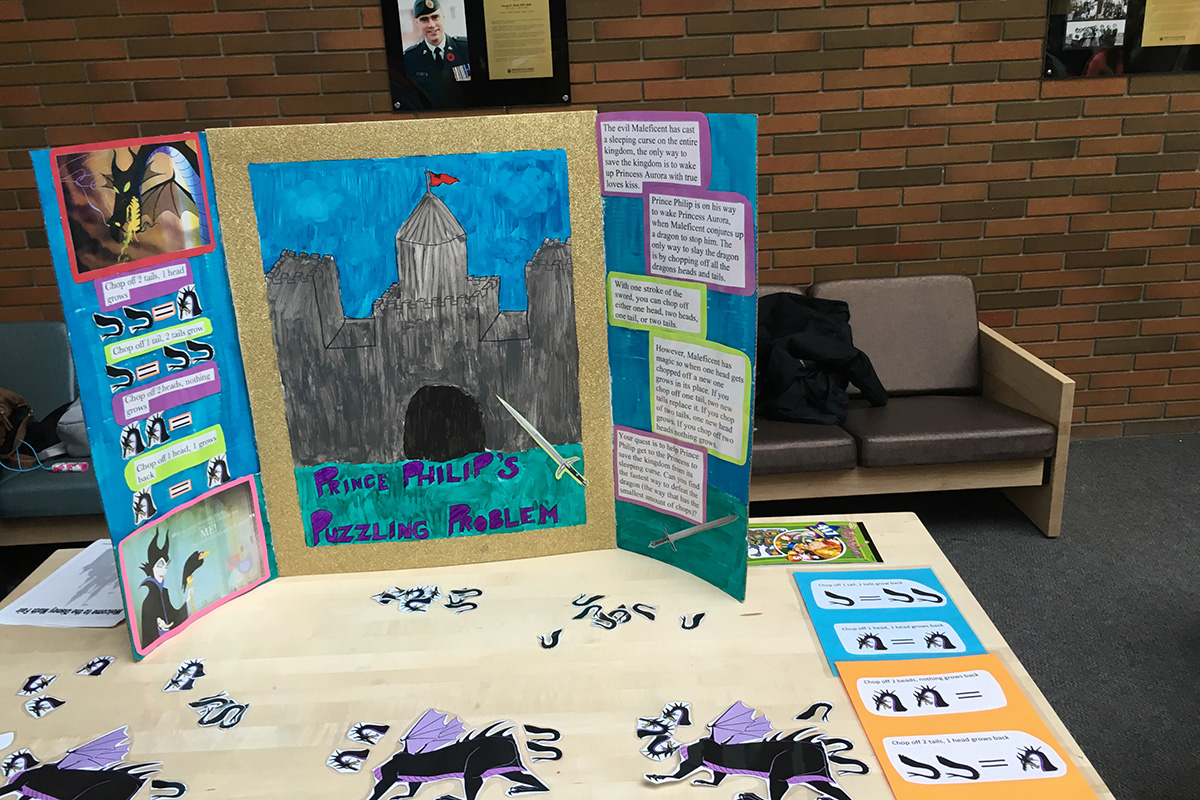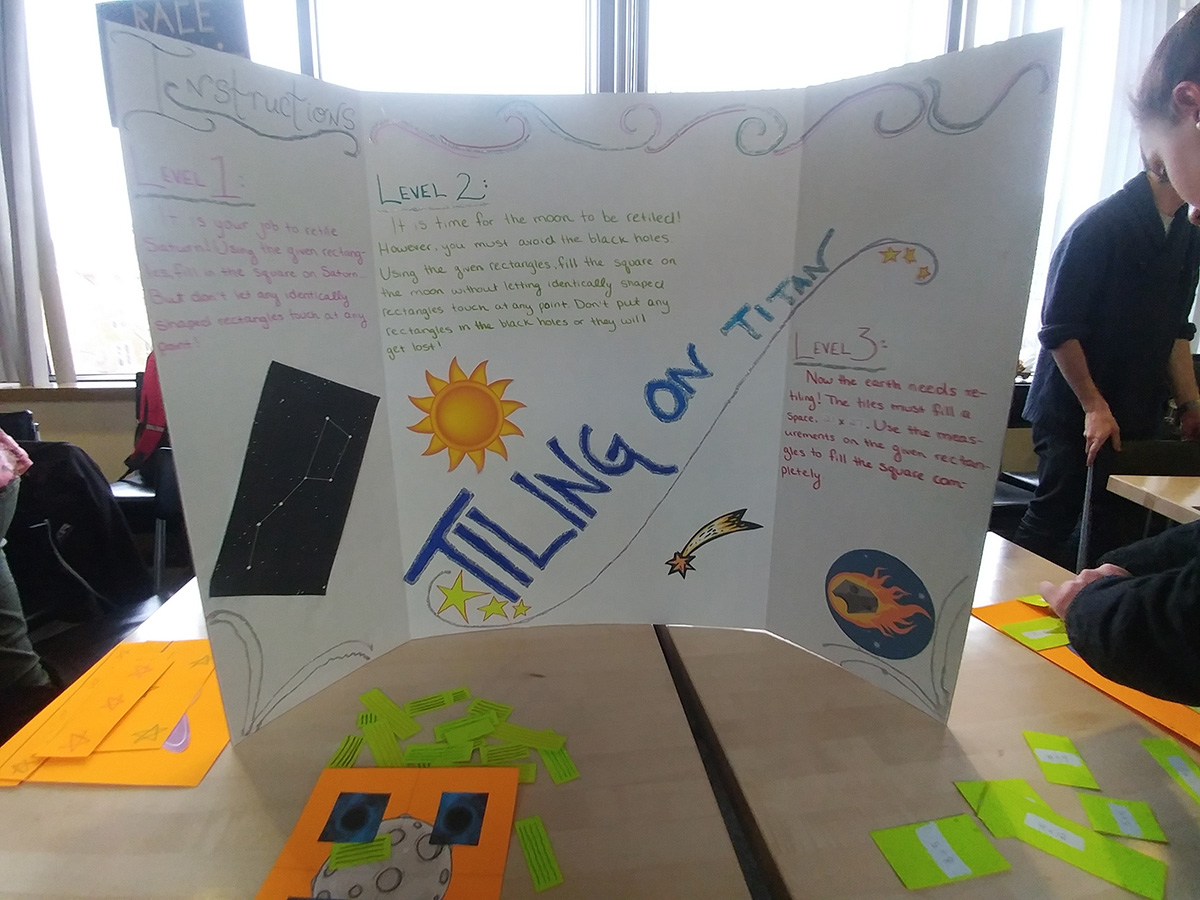SNAP Fitness? Nah, SNAP math fair.
 Supplied
SuppliedMove over, science fairs: educators at the University of Alberta are using math fairs to “gamify” how students learn math.
On November 25, McKernan School Grade 9 students visited the Education Building to attend a SNAP (student-centered, non-competitive, all-inclusive, and problem-based) math fair, a math puzzle fair for K-12 students to learn and have fun. These math fairs are hosted on campus twice a year by the Department of Mathematical and Statistical Sciences, with the involvement of volunteers from the undergraduate and graduate levels.
SNAP resembles a conventional science fair, with math games instead of science experiments. The fairs contain a variety of student-designed games and puzzles, aimed at inspiring students to learn and practice mathematical reasoning and problem-solving in a low-stakes environment.
This year, U of A mathematician Sean Graves led SNAP.
“We invite schools to our math fair in hopes that they will be motivated to go back to their own schools and have their own math fairs with their own students,” Graves said.
Graves added a twist to this year’s SNAP: a Math Unfair, where graduate students and undergraduate volunteers to teach kids combinatorial games, challenge them one-on-one, and encourage them to develop problem-solving strategies. The Math Unfair consisted of games such as Tri-Nim, a board game that uses binary arithmetic, and a variation of tic-tac-toe – with an extra square.

Sam Neufeld, a high-school teacher at McKernan School, said the use of “recreational mathematics” is an effective direction for future education.
“It’s the gamification of learning,” she explained. “(Students) love games and puzzles on their phones, and all these apps have mathematical strategies. They have no idea that what they’re doing is math.”
The SNAP math fair was created in 1997-98 by Andy Liu, a professor in the U of A’s Department of Mathematics, and Mike Dumanski, the vice-principal of Our Lady of Victories Elementary School. The idea was to give the Faculty of Education’s MATH 160 (Higher Arithmetic) undergraduates opportunities to work with young math students.
The MATH 160 tradition is still going today — students in the course must develop their own problem-based puzzles and games. This year, undergraduates in the course designed and presented space-themed exhibits.

Graves also coordinates the Decima Robinson Support Centre, a help centre at the U of A for students in mathematics and statistics courses. He said he hopes to continue SNAP into future years.
“Mathematics can be a lot of fun,” he said. “I hope that students who leave the SNAP Math Fair, leave with a new appreciation for math.”




